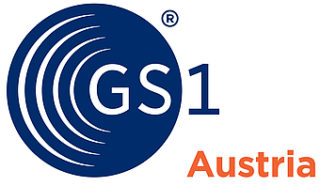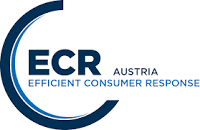Successful test shipment with the digital consignment note eCMR

“Blockchain Initiative Logistik”: successful test shipment with the digital consignment note eCMR
In a test run spearheaded by Wildenhofer freight forwarding company, the electronic consignment note (eCMR) was used for the first time. Relying on the lessons learned from this test run, the “Blockchain Initiative Logistik” will now turn to the final phase of implementing a solution designed for general use in the industry.
Consignment papers and, more specifically, consignment notes for international shipments are essential for the transport of goods. Even though digitalization has lately been on the rise in many industries including the logistics industry, many paper-based processes remain. As a consequence, transport-related information and signatures for freight forwarders, shippers, carriers and insurances are oftentimes not available when needed. Mistakes and fraud are also on the agenda. The benefits of digitalization in this area are obvious. This is why the “Blockchain Initiative Logistik” created in 2019 decided to tackle this challenge in its first use case and developed an industry-specific solution for the use of eCMR (=digital consignment notes). EDITEL was part of this initiative from the very start and encouraged Wildenhofer, a freight forwarding company, to become the first participant of the pilot phase. The company recently completed a successful test run with eCMR.
From the pilot phase to practical application
In the first project phase, it became evident, at least in theory, that the blockchain technology was the right choice for the digitalization of consignment notes. The second phase revolved around the development of a comprehensive and advanced solution for the professional use in practice. One of the areas of focus was the identification of all participants with digital signatures, the issue of data protection (GDPR) and compliance with standards. The most exciting and last part of this phase was definitely the first test shipment. One of them was initiated by EDITEL and performed by the renowned Salzburg-based freight forwarding company Wildenhofer. The merchandise sender and recipient were also part of this test run.
Wildenhofer was able to introduce the new application both on the back office side and with its drivers without the need for any special training. A short test run before the first actual shipment sufficed to convince all involved employees of this intuitive solution. The process of incorporating the merchandise sender and recipient who had to acknowledge that the merchandise was handed over for shipping and that it was received also went very smoothly.
A landmark result
This experience allowed the cargo company Wildenhofer and its clients to provide valuable input for the finishing touches to the eCMR application. The benefits of digitalization were also immediately tangible for everybody. All participants (clients, freight forwarding company and recipient) were able to follow all stages of the shipment process in real time. At the time the merchandise was handed over for shipping, the completed documents were available for everybody at the same time. Precious time was saved and a lot of manual process steps might become obsolete in the future. After all, especially in the logistics industry, time is money!
Ultimately, the electronic consignment note is a real asset for all participants and the software behind it met all requirements. According to the senior officer Rudolf Mieser at Wildenhofer, this test shipment was “not only highly exciting, but also a landmark experience because we and our business partners will benefit from the advantages of the process in the future. Gerd Marlovits, the CEO of EDITEL, sees this practical test run and the resulting important insight regarding usability as “valuable feedback for choosing the next steps in the development process.”
The next steps
After the conclusion of the second practical phase, the third and last phase is scheduled to start in early May. This phase will mostly revolve around building a platform that can be widely used in the entire industry. The focus will be on the technical and organizational integration of additional partners. Also, some additional preparatory work will be required since the EU regulation on electronic freight transport information (eFTI) will become effective in August 2024.
The benefits of the digital consignment note
Several institutions have calculated that the direct savings associated with the elimination of manual and repetitive document handling activities alone are at least EUR 4.50 per eCRM consignment note.
The use of an authentic digital eCMR solution also offers the following benefits:
- Reduced process costs thanks to automation potential, e.g., the direct connection to transport management systems
- Swift access to all data and status by all participants (sender, recipient, carrier, freight forwarding company, authorities and insurances in the case of claims) in real time
- Precise logs of changes to documents, which was previously done in a non-traceable handwritten manner on individual carbon copies
- Electronic proofs of delivery delivered concurrently with the recipient’s signature
- Easy archiving and accessibility, e.g., for tax audits
About the “Blockchain Initiative Logistik”
In an effort to explore the potential of the blockchain technology for the Austrian logistics industry, the auditing and consulting firm EY teamed up with cargo companies DB Schenker and LKW Walter, GS1 Austria, the EDI service provider EDITEL Austria, the Bundesvereinigung Logistik Österreich (BVL) and the Vienna University of Economics and Business to launch the “Blockchain Initiative Logistik” in 2019. The first pilot project started by this initiative is all about the digitalization of international consignment notes (CMR). The goal is to automate roughly 75 million processes per year for Austrian logistics companies and to save twelve million sheets of paper in the process. In 2019, the Blockchain Initiative received the “Blockchain project of the year” futurezone award.
So far, experience has shown that the relevance of blockchain technology goes well beyond cryptocurrencies and offers significant value for projects with different participants and interests. The “Blockchain Initiative Logistik” believes in using technologies that do not rely on the highly energy-consuming mining traditionally used for cryptocurrencies. This approach combines the benefits of the blockchain technology (confidentiality, inalterability, availability) with a favorable carbon footprint.
The press release “Blockchain Initiative Logistik: successful test shipment with the digital consignment note eCMR” is also available as a download.
Symbolic image copyright Wildenhofer



